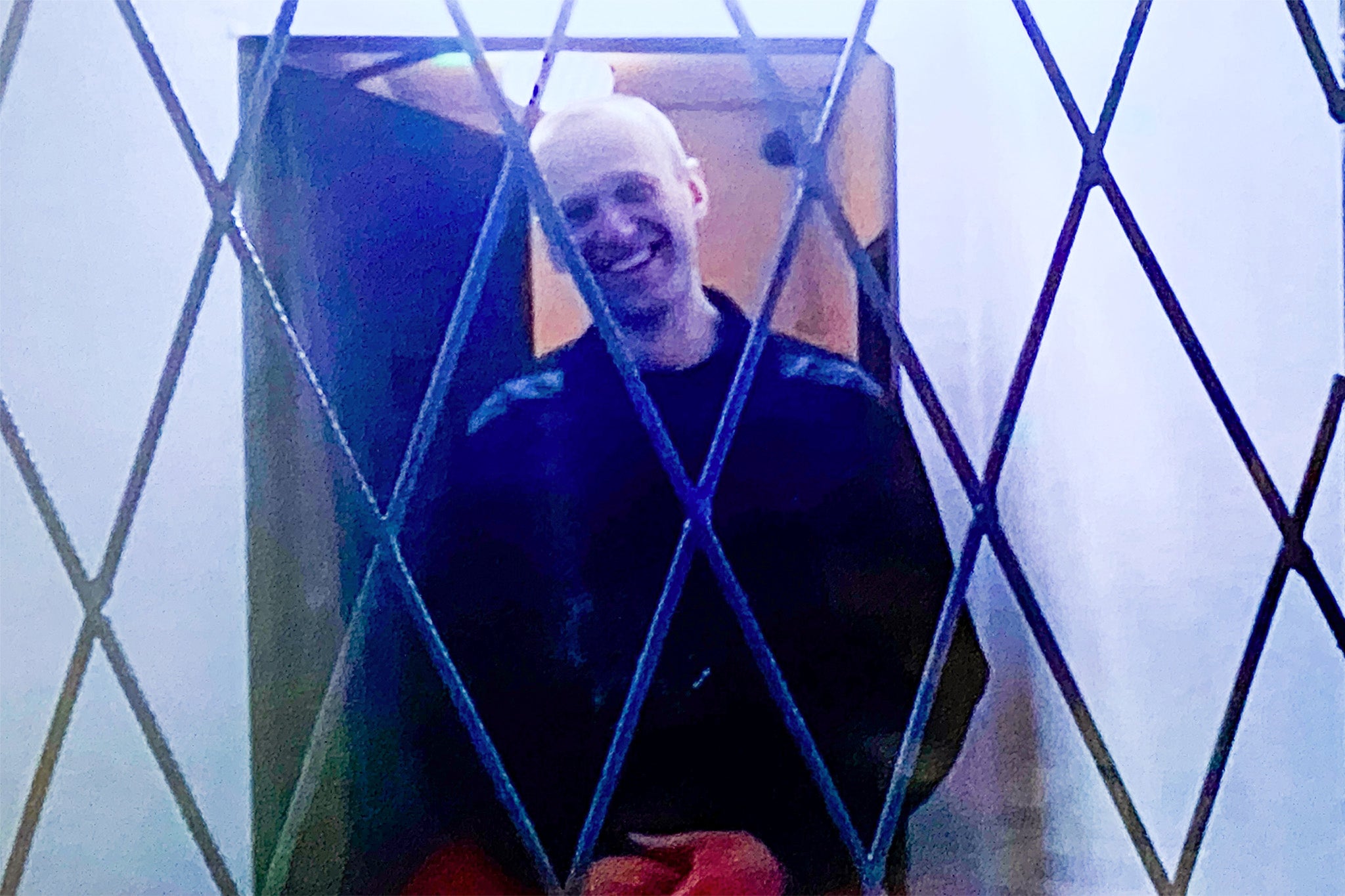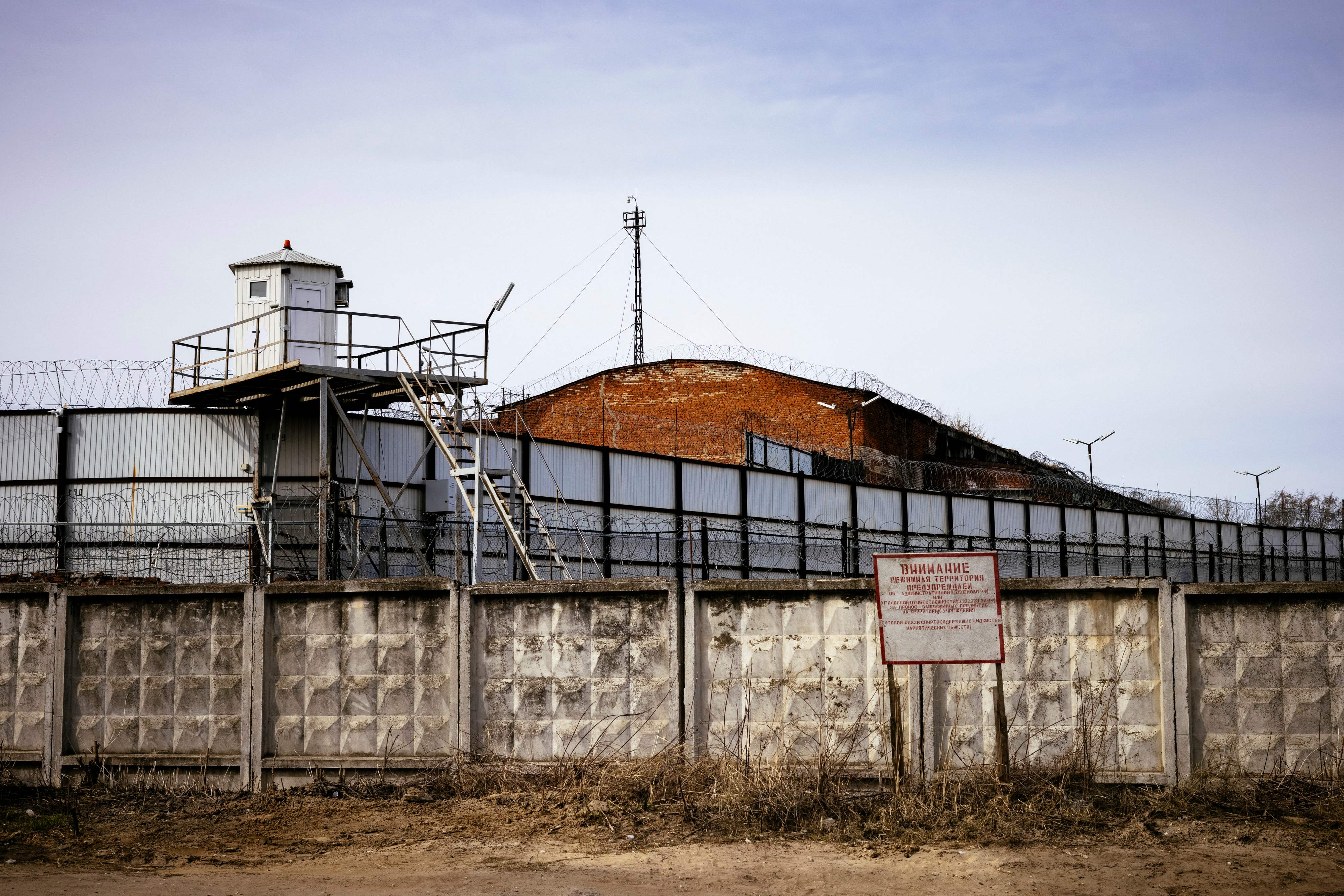Inside the Polar Wolf penal colony in Kharp where Alexai Navalny died
The oppositon leader has been in jail since returning to Russia in 2021
Your support helps us to tell the story
From reproductive rights to climate change to Big Tech, The Independent is on the ground when the story is developing. Whether it's investigating the financials of Elon Musk's pro-Trump PAC or producing our latest documentary, 'The A Word', which shines a light on the American women fighting for reproductive rights, we know how important it is to parse out the facts from the messaging.
At such a critical moment in US history, we need reporters on the ground. Your donation allows us to keep sending journalists to speak to both sides of the story.
The Independent is trusted by Americans across the entire political spectrum. And unlike many other quality news outlets, we choose not to lock Americans out of our reporting and analysis with paywalls. We believe quality journalism should be available to everyone, paid for by those who can afford it.
Your support makes all the difference.The Arctic Circle prison where jailed Russian opposition leader Alexei Navalny was being held has said the fierce critic of Vladimir Putin is dead.
The prison claimed that Navalny had felt unwell after a walk and lost consciousness immediately. His lawyer has flown to the penal colony to confirm his death, saying they cannot yet do so.
In early December last year, Navalny disappeared from a central Russian prison where he was serving a two-decade sentence on extremism and fraud charges, that supporters and the international community say are trumped up. It then emerged three weeks later that he had been transferred to the IK-3 prison camp in Kharp, about 1,900km (1,200 miles) northeast of Moscow, where temperatures reach up to -30C.
Follow live updates and reaction here
Here, The Independent takes a look at the prison conditions Navalny said he was forced to endure since he was jailed upon his return to Russia to 2021 from Germany, where he had life-saving treatment for nerve agent poisoning. Navalny blamed that attack on the Kremlin.

Poor medical treatment
A report from rights group Amnesty International last year catalogued the medical treatment Navalny’s legal team have laid out. Navalny first complained of his worsening health condition in March 2021, soon after his transfer from a pre-trial detention center to a penal colony. He experienced debilitating back pains and numbness in his legs. Additionally, he said he was being subjected to intrusive hourly night “checks” that effectively deprived him of uninterrupted sleep for several weeks.
The prison administration refused to provide him with adequate healthcare or even to share with him his medical records. Eventually, after an international campaign in his support and a hunger strike, the authorities offered him some medical treatment and allowed him to access information about his health.
Starting in December 2022, prison authorities repeatedly placed Navalny in a cell with another prisoner who, according to the Putin critic, was in poor health, and the authorities failed to put in place preventive measures to protect Navalny’s health. At that time, hecontracted a respiratory infection. Despite their worsening condition, the prison administration refused to move either him or the other prisoner to the medical ward. According to Navalny’s lawyer, he was eventually given a wrong type of antibiotics, which allegedly made his condition worse.
Mariana Katzarova, the United Nations special rapporteur for human rights in the Russian Federation, expressed her fears over Navalny’s health late last year: “Persistent ill-treatment in detention and lack of access to adequate medical care will cause further harm to his health and lead to great risks to his life.”
His family and lawyers say he has been suffering from an acute, undiagnosed, stomach illness while in prison. That, and general deprivation, has led to alarming weight loss and fainting spells.

Solitary confinement
In January, Navalny’s spokesperson said the opposition leader had been placed in solitary confinement for 10 days for “incorrectly introducing himself” to a guard.
Kira Yarmysh said on X that it was the 25th time Navalny had been placed in solitary confinement and that he had spent 283 days in such conditions.
Injected with unknown drugs
In December, Navalny said he was suffering worsening back pain from his previous prison, thanks that he said were part of a deliberate strategy by the authorities to undermine his health.
In a post on Twitter, he also complained of being injected with unknown drugs.
"See how the system works when you are not allowed to beat up a person, but your leadership ordered you to hurt them badly," the Twitter post said.
"For example, I have a problem with my spine. It is clear what one has to do to make the problem worse: keep me immobile as much as possible," said Navalny, 46, who is able to post on social media via his lawyers and allies.
"If you lock a person up in a punishment cell, where he can either stand or sit on an iron stool for 16 hours a day, after a month in such conditions even a healthy person will undoubtedly get back pains. I've spent the last 3 months like this. Naturally, my back hurts a lot."
Navalny said he had asked for a month and a half to see a doctor. When a doctor finally came, he said, she examined him for just five minutes and refused to tell him her diagnosis or what she was prescribing.
He said he had then been given injections. When he asked what they contained, he was told: "We inject what the doctor prescribed. Vitamin B, for example."
The injections are not helping, he said, "and in general, I feel a little uncomfortable being injected with an unknown drug".
Darkness
The “Polar Wolf” colony whre Navalny was held last is surrounded by mountains and tundra, with freezing dark winters making way for short, mosquito-infested summers.
Navalny joked about the conditions and said in December: “I don’t say ‘Ho-ho-ho,’ but I do say ‘Oh-oh-oh’ when I look out of the window. Where I can see it’s night, then evening, then night again.”
Pro-Putin propaganda
The Kremlin-critic said he was locked in a cell in his Arctic prison where he could only pace back and forth for 11 steps, and was forced to listen to a pro-Putin pop song by Yaroslav Dronov, who performs under the stage name Shaman, at 5am every day.
“The singer Shaman appeared on stage when I was already imprisoned, so I could neither see nor listen to his music. But I know that he is now Putin’s main singer. And he has the most popular song: ‘I’m Russian’,” Navalny said on X, formerly known as Twitter.
“And here, every day at 5 o’clock in the morning, we hear the command: ‘Wake up!’, followed by the Russian national anthem. Immediately afterward, the country’s second most important song is played – I’m Russian by Shaman,” he wrote.
Allegations of torture in Russian prisons
Former prisoners of the IK-3 penal colony in Kharp have also described instances of torture there.
In a 2018 interview with the Novie Izvestiya outlet, one former convict said that on arrival to the colony, he was beaten “from all sides with a truncheon”, adding that the prison guards practised “collective punishment” on inmates. Russian authorities have denied such allegations.

Join our commenting forum
Join thought-provoking conversations, follow other Independent readers and see their replies
Comments